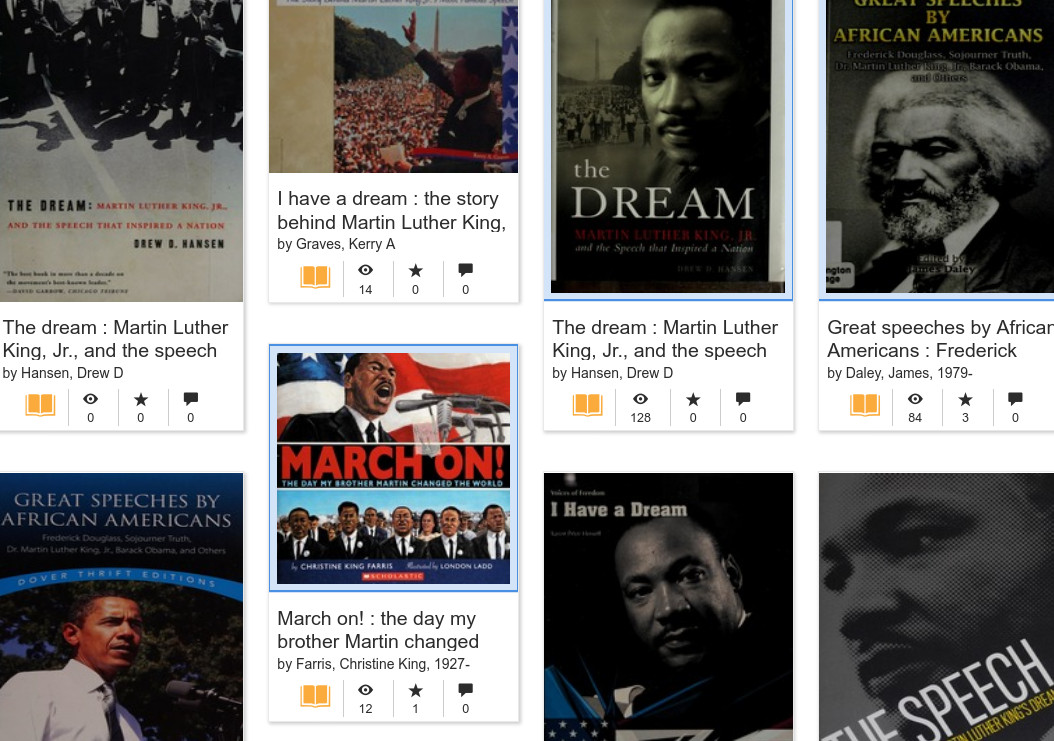#MLKDay2021  isn't just an opportunity to remember Dr King; it's also a moment to contest his legacy - to remember him for who he was, a radical anti-capitalist who believed that racism was a tool first and foremost for class oppression.
isn't just an opportunity to remember Dr King; it's also a moment to contest his legacy - to remember him for who he was, a radical anti-capitalist who believed that racism was a tool first and foremost for class oppression.
https://theintercept.com/2016/01/18/martin-luther-king-jr-celebrations-overlook-his-critiques-of-capitalism-and-militarism/
1/
 isn't just an opportunity to remember Dr King; it's also a moment to contest his legacy - to remember him for who he was, a radical anti-capitalist who believed that racism was a tool first and foremost for class oppression.
isn't just an opportunity to remember Dr King; it's also a moment to contest his legacy - to remember him for who he was, a radical anti-capitalist who believed that racism was a tool first and foremost for class oppression.https://theintercept.com/2016/01/18/martin-luther-king-jr-celebrations-overlook-his-critiques-of-capitalism-and-militarism/
1/
Thankfully, we have a wealth of primary and secondary King material online and open access, especially in the @internetarchive.
Start with 20 minutes' worth of the March on Washington, courtesy of the National Archive.
https://archive.org/details/gov.archives.arc.49737
2/
Start with 20 minutes' worth of the March on Washington, courtesy of the National Archive.
https://archive.org/details/gov.archives.arc.49737
2/
Then King's Hofstra University commencement speech:
https://archive.org/details/podcast_mapping-african-american-p_martin-luther-king-jr-commenc_1000090058488
The Archive has thousands of books about King:
https://archive.org/search.php?query=martin+luther+king&and%5B%5D=mediatype%3A%22texts%22
A collection of his speeches:
https://archive.org/search.php?query=martin+luther+king&and%5B%5D=mediatype%3A%22texts%22&and%5B%5D=subject%3A%22Speeches%2C%20addresses%2C%20etc.%2C%20American%22
Books for kids:
https://archive.org/search.php?query=martin+luther+king&and%5B%5D=mediatype%3A%22texts%22&and%5B%5D=subject%3A%22King%2C%20Martin%20Luther%2C%20Jr.%2C%201929-1968%20--%20Juvenile%20literature%22
3/
https://archive.org/details/podcast_mapping-african-american-p_martin-luther-king-jr-commenc_1000090058488
The Archive has thousands of books about King:
https://archive.org/search.php?query=martin+luther+king&and%5B%5D=mediatype%3A%22texts%22
A collection of his speeches:
https://archive.org/search.php?query=martin+luther+king&and%5B%5D=mediatype%3A%22texts%22&and%5B%5D=subject%3A%22Speeches%2C%20addresses%2C%20etc.%2C%20American%22
Books for kids:
https://archive.org/search.php?query=martin+luther+king&and%5B%5D=mediatype%3A%22texts%22&and%5B%5D=subject%3A%22King%2C%20Martin%20Luther%2C%20Jr.%2C%201929-1968%20--%20Juvenile%20literature%22
3/
Detroit's Marygrove College shut its doors in 2019, and the contents of its Geschke Library were entrusted to the Internet Archive: 70,000 books and 3,000 journals, many related to King, scanned and online:
https://archive.org/details/marygrovecollege?&and%5B%5D=subject%3A%22King%2C%20Martin%20Luther%2C%20Jr.%2C%201929-1968%22
4/
https://archive.org/details/marygrovecollege?&and%5B%5D=subject%3A%22King%2C%20Martin%20Luther%2C%20Jr.%2C%201929-1968%22
4/
The #1000blackgirls campaign produced an extensive reading list for kids, books featuring Black girls as protagonists. The ebooks are available for checkout to anyone who gets a free Internet Archive library card:
https://archive.org/details/1000blackgirlbooks
5/
https://archive.org/details/1000blackgirlbooks
5/
The Zora Canon is "a collection of the 100 most prominent books written by African American women," also available for check-out as ebooks from your local library and the Internet Archive's collection.
https://help.archive.org/hc/en-us/articles/360044159771-100-Great-Books-by-Black-Women-The-Zora-Canon
6/
https://help.archive.org/hc/en-us/articles/360044159771-100-Great-Books-by-Black-Women-The-Zora-Canon
6/
You and your kids can enjoy this bibliography of books about racial justice for children, with age ratings:
https://help.archive.org/hc/en-us/articles/360044469471-Racial-Equality-Books-for-Kids
Here's a list of 47 Black-owned bookstores where you can buy physical copies of all these books for your home:
https://ew.com/books/black-owned-bookstores-to-support/
7/
https://help.archive.org/hc/en-us/articles/360044469471-Racial-Equality-Books-for-Kids
Here's a list of 47 Black-owned bookstores where you can buy physical copies of all these books for your home:
https://ew.com/books/black-owned-bookstores-to-support/
7/
This wealth of open-access MLK-related material came about as the result of an intense, two-decade struggle over King's words. 15 years ago, you couldn't get "I have a dream" online, but you could hear it in a car commercial.
https://www.washingtonpost.com/wp-dyn/content/article/2006/01/14/AR2006011400980.html
8/
https://www.washingtonpost.com/wp-dyn/content/article/2006/01/14/AR2006011400980.html
8/
And even with all this material available for everyone to read, think about, debate and be inspired by, the history of the Civil Rights movement is still only preserved in fragments.
9/
9/
If you have some of those fragments in your possession, the Internet Archive will digitize, preserve and provide access to them for free, forever, for everyone.
https://blog.archive.org/2021/01/05/downsizing-in-2021-donate-your-discarded-books-and-media-to-the-internet-archive/
10/
https://blog.archive.org/2021/01/05/downsizing-in-2021-donate-your-discarded-books-and-media-to-the-internet-archive/
10/
Modern copyright began in the late 19th century, when Victor Hugo's advocacy led to the creation of the Berne Convention, a global treaty that is now part of all major trade deals, such as the WTO agreement.
11/
11/
Hugo's legacy has been distorted for ideological purposes - just as King's has been. Today, we are told only that King believed in nonviolence, while his calls for dismantling capitalism are conveniently erased.
12/
12/
And we are likewise told that Hugo concerned himself with how authors' descendants would steer their legacy - but no one mentions that Hugo was intensely suspcious of the actual, biological descendants of authors.
13/
13/
Hugo thought children and grandchildren were not especially well-placed to understand their forebears' significance in history and thought and liable to flog off their inherited exclusive rights to grasping rentiers.
14/
14/
The "descendants" Hugo sought to protect were the ideological descendants of great writers: the people who had been inspired by their ideas and wanted to carry them forward.
15/
15/
King had far more to say than simply deploring violence. He was a towering, radical, revolutionary figure. If we are to defend his legacy, we must start by rejecting the erasure of his political and economic program.
16/
16/
The treasure trove of King's work that we can access today - and every day - are the raw materials for carrying out his legacy and his program: for changing our society into a fundamentally more just, kind and sustainable one.
eof/
eof/

 Read on Twitter
Read on Twitter


